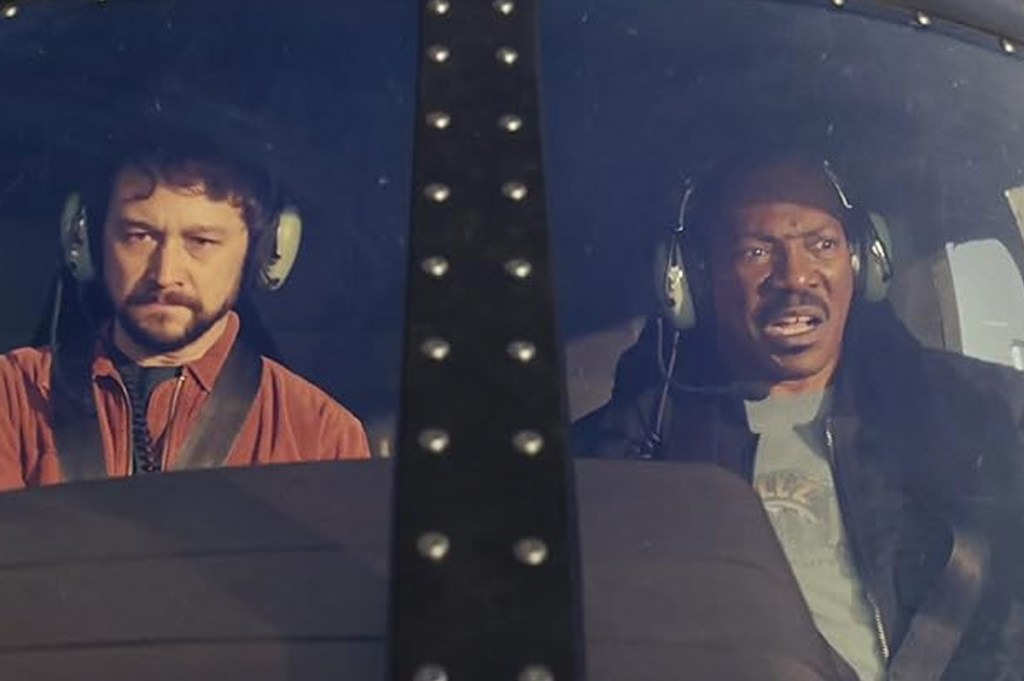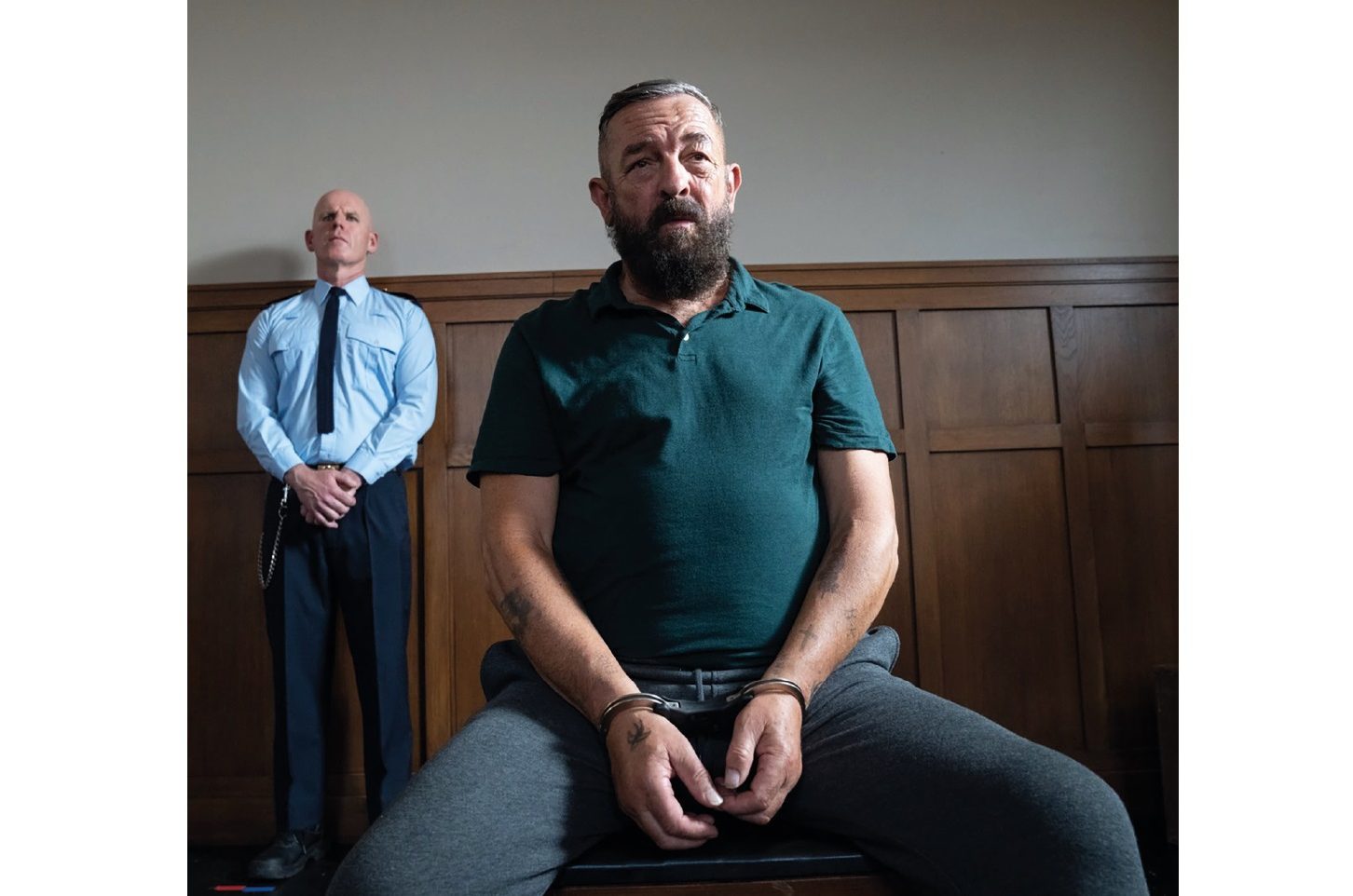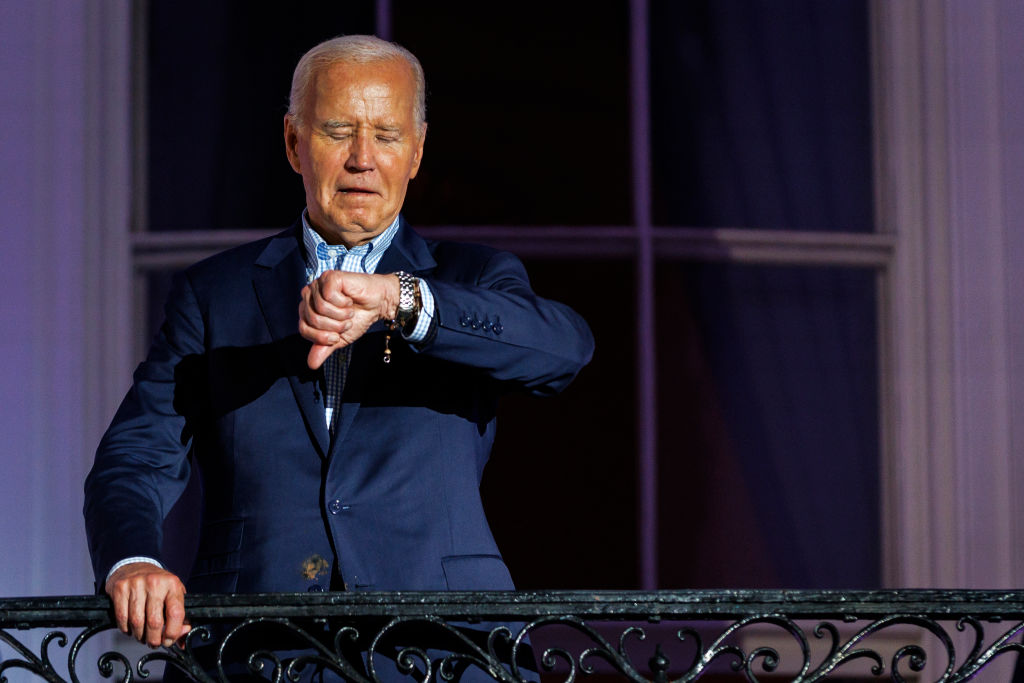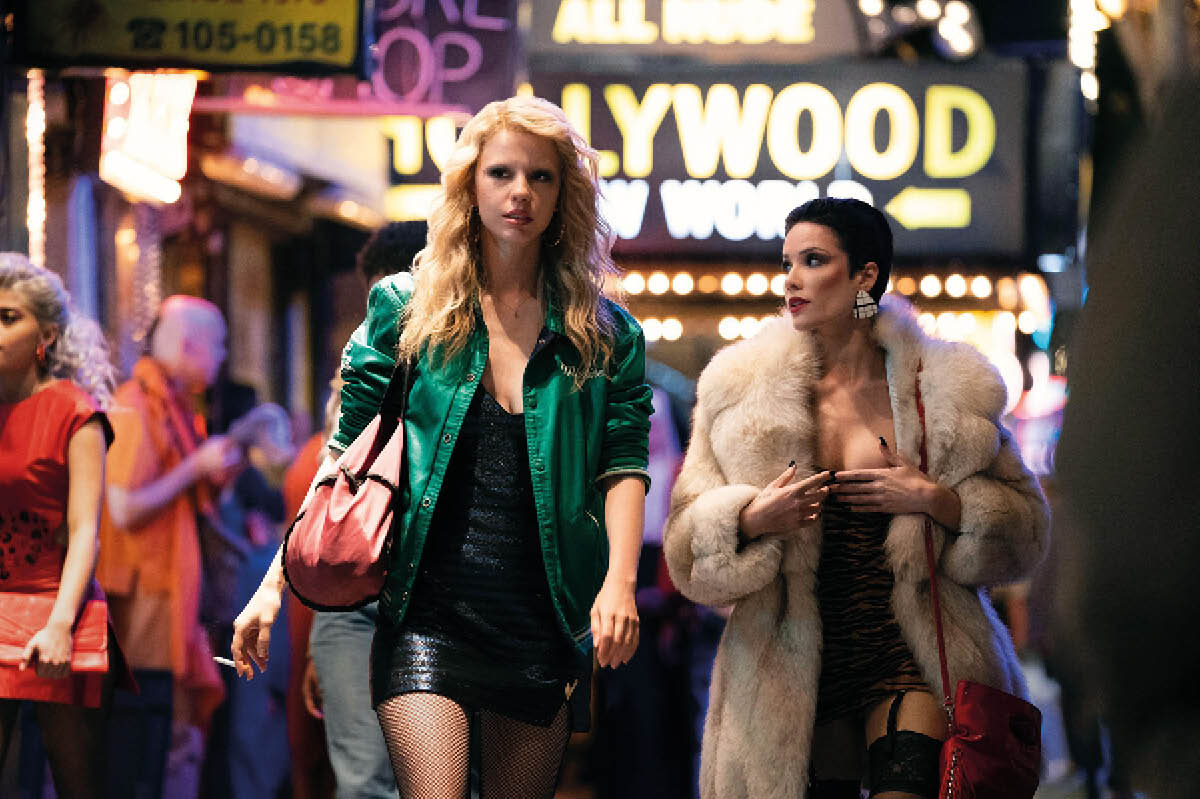If you have a Netflix subscription, then you’ll quite probably be tempted to watch the new $150 million Beverly Hills Cop film. The movie is snappily subtitled Axel F — the name of the would-be iconic Axel Foley character, equally snappily embodied by Eddie Murphy, returning to play the part for the first time in three decades.
In truth, the movie is an undemanding and entertaining watch that flies by in a couple of inconsequential hours. Directed by debutant filmmaker Mark Molloy, it brings Foley back to Beverly Hills — via some complicated plot mechanics that don’t need to concern anyone but the most anxious viewer — in order to become involved in a police corruption scandal. Without wishing to give away more than the trailer has already done, look at the big-name actor third on the cast list, and wonder what he or she is doing in the movie.
Yet the appeal of the film does not lie in complex or sophisticated plot twists. Instead, it is aimed at an audience who likes to see shit blown up real good, accompanied by one-liners of varying quality and audibility and who are nostalgic for a bygone era of cinema. Although Axel F is supposedly set in 2024, it has the comforting throwback feel of a movie that could have been made virtually any time over the past few decades. Given that the original movie in the series is now forty years old, and its star a well-preserved sixty-three, it is tempting to wonder who, exactly, was around when Axel first waltzed onto the screen, and whether the whooping teenage boys who initially thrilled to his adventures are as likely to savor his reprise given that they will, in many cases, be on the cusp of turning sixty.
The reason for the film’s existence — and, indeed, its presence on Netflix, rather than in our multiplexes — is surely to capitalize on the lucrative urge for nostalgia in IP that is currently consuming cinema. Barbie, Super Mario Bros, Inside Out 2 and even Bad Boys: Ride or Die might have little in common with one another on paper, save for the fact that they are appealing to a conservative audience that wants to go and spend their $12 a ticket on pictures that they know are going to appeal to them. Only this can explain the often laughable amount of time that passes between films and their sequels. Once, it was regarded as noteworthy, even bizarre, that there was a twenty-three-year gap between Psycho and Psycho II. Now, such an ellipsis between follow-ups would be seen as almost indecently hasty, although these pictures will have a job to beat the staggering fifty-four years that elapsed between Mary Poppins and its highly belated sequel, Mary Poppins Returns.
The question of whether Eddie Murphy is still a movie star has not really been asked in many years. He is now a father of ten whose relatively rare appearances on chat shows suggest that he is a far more subdued presence than the youthful firebrand whose showcases on Saturday Night Live threatened to change the face of alternative comedy. He is fine as Axel Foley, cutting loose from time to time, but without the genuinely dangerous flair that he first brought to the role.
But surely his reason to return to the part is to compete with his contemporary Tom Cruise, whose Top Gun: Maverick proved the most surprising and endurable hit of 2022; an action picture that leaned into the iconography of its star and came out at Mach Ten as a result. Cruise remains a cinematic legend, and probably will continue to be so until the day he dies. As for Murphy, who now seems happy to embrace the role of all-round entertainer, it’s nice to see him back, but little more than that. And that is the difference between an enjoyably diverting blockbuster, such as this, and an essential one.






















Leave a Reply